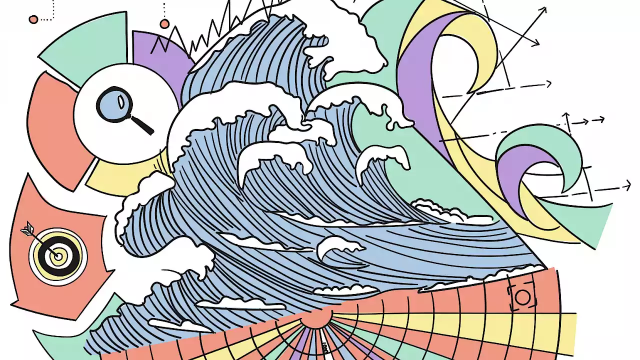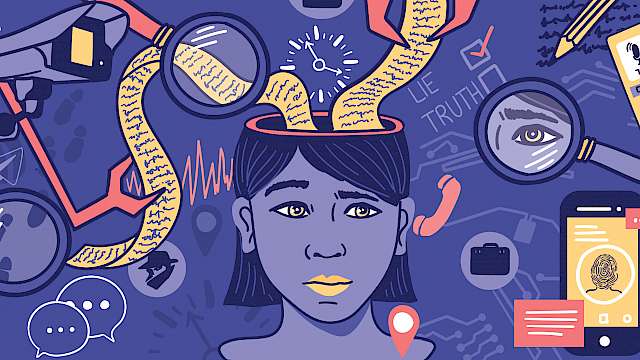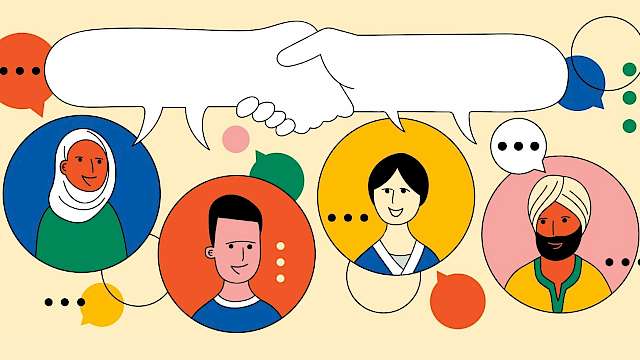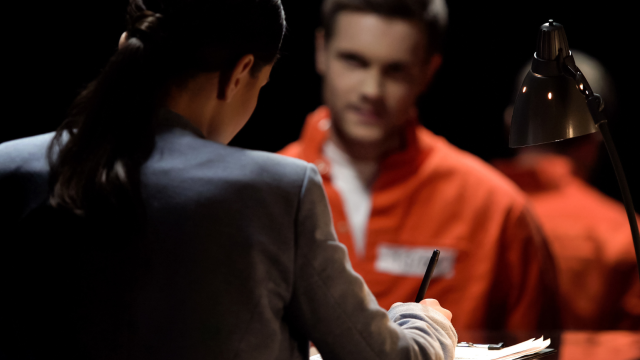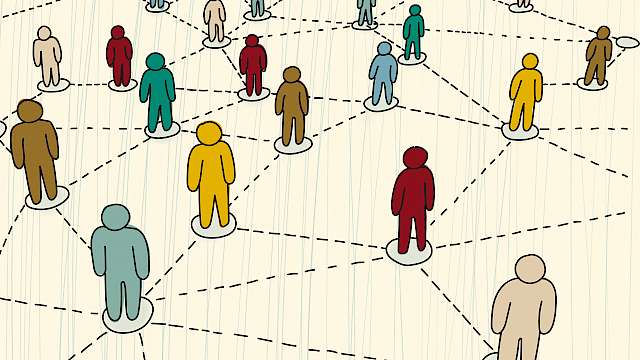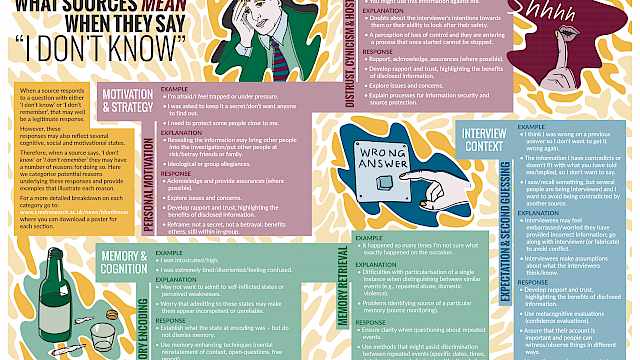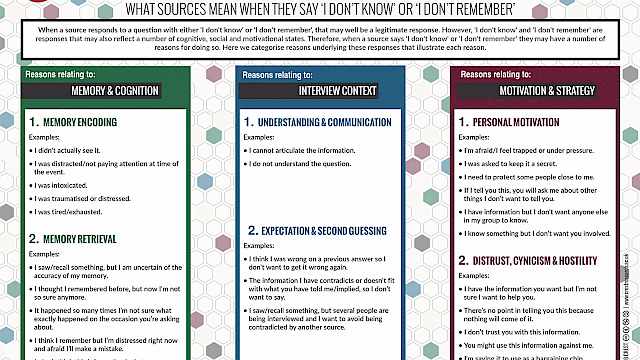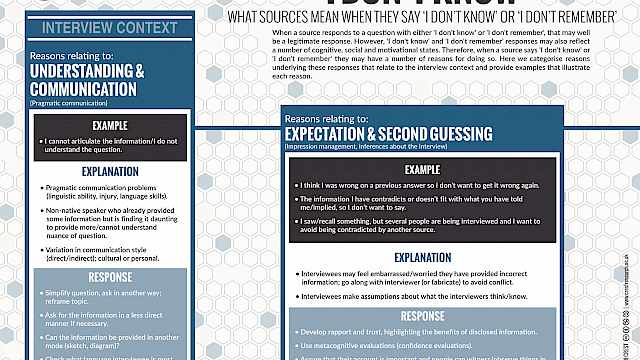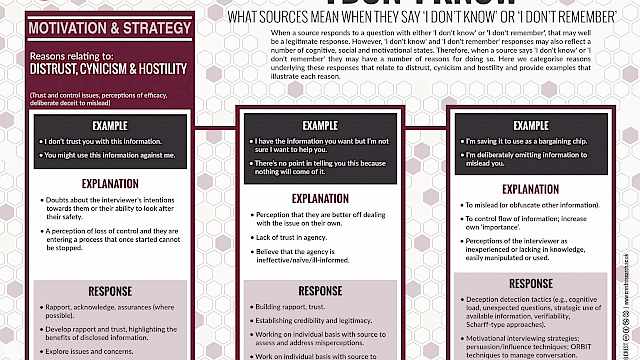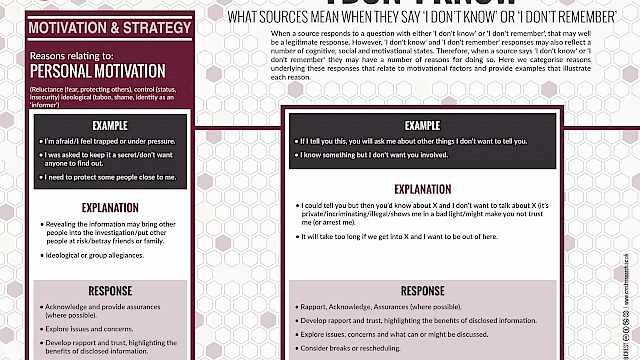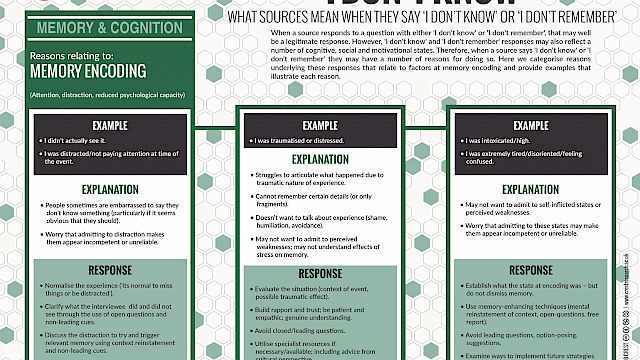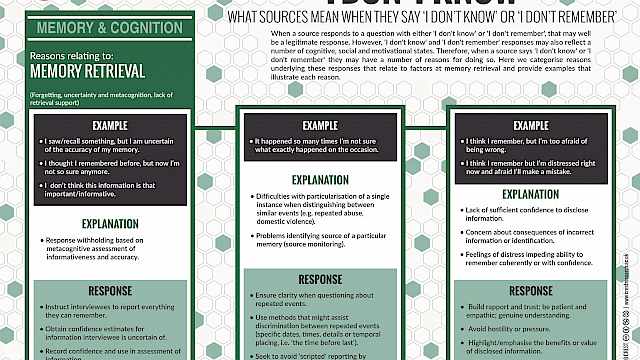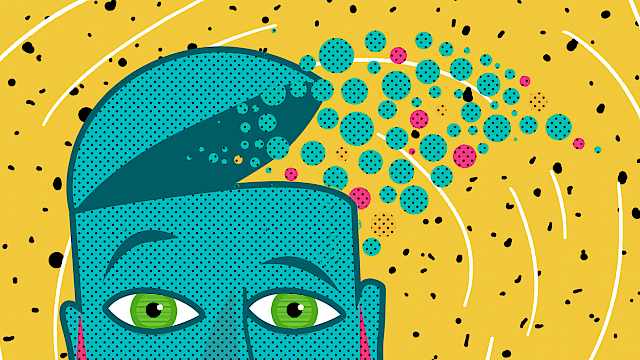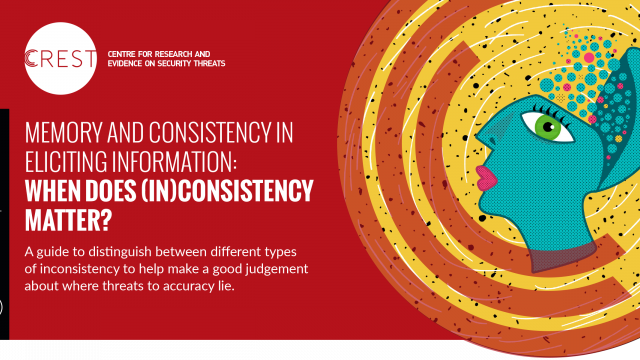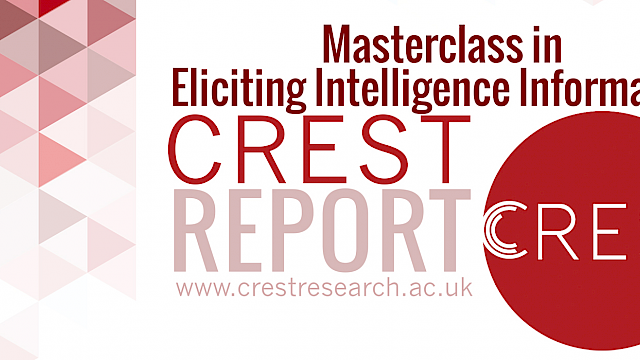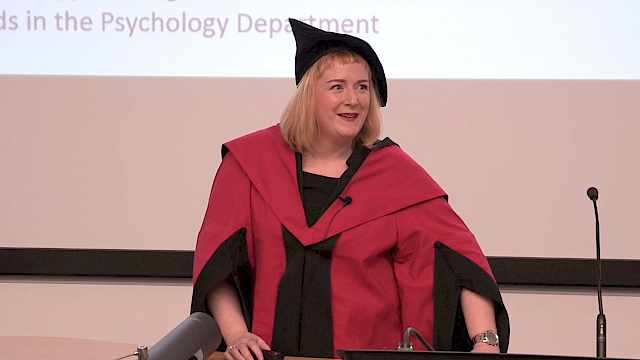Lorraine Hope
Lorraine Hope is Professor of Applied Cognitive Psychology at the University of Portsmouth. She holds degrees from Lancaster, Bristol and Aberdeen universities and is a member of the UK Centre for Research and Evidence on Security Threats (CREST). Her work focuses on the performance of human cognition in applied contexts, including memory and decision-making under challenging conditions.
Over the past 15 years, her research has resulted in the development of innovative tools and techniques, informed by psychological science, for eliciting accurate and detailed information and intelligence in security, policing and intelligence contexts. Working with national and international collaborators, Professor Hope has secured competitive funding from the Economic and Social Research Council, British Academy, Royal Society, Australian Research Council, Home Office and national police forces.
She has published widely on memory and information elicitation topics and speaks regularly at academic and practitioner conferences. She is an invited member of the Executive Board of the International Investigative Interviewing Research Group (iIIRG), an elected member of the Governing Board of the Society for Applied Research on Memory and Cognition (SARMAC), Associate Editor of British Psychological Society journal Legal and Criminological Psychology and Consulting Editor for the American Psychological Association Journal of Experimental Psychology: Applied.
CREST Outputs
Projects
Articles
Academic Publications
Memory at the Sharp End: The Costs of Remembering With Others in Forensic Contexts
In many applied contexts where accurate and reliable information informs operational decision‐making, emergency response resource allocation, efficient investigation, judicial process, and, ultimately, the delivery of justice, the costs of unfettered conversational remembering can be high. To date, research has demonstrated that conversations between co‐witnesses in the immediate aftermath of witnessed events and co‐witness retellings of witnessed events often impair both the quality and quantity of information reported subsequently. Given the largely negative impact of conversational remembering on the recall of both individual witnesses and groups of witnesses in this context, this review explores the reasons why these costs occur, the conditions under which costs are exacerbated, and how, in practical terms, the costs can be reduced in order to maximize the accuracy and completeness of witness accounts.
(From the journal abstract)
Lorraine Hope, and Fiona Gabbert. 2018. ‘Memory at the Sharp End: The Costs of Remembering With Others in Forensic Contexts’. Topics in Cognitive Science: https://doi.org/10.1111/tops.12357.
Facilitating recall and particularisation of repeated events in adults using a multi-method interviewing format
Reports about repeated experiences tend to include more schematic information than information about specific instances. However, investigators in both forensic and intelligence settings typically seek specific over general information. We tested a multi-method interviewing format (MMIF) to facilitate recall and particularisation of repeated events through the use of the self-generated cues mnemonic, the timeline technique, and follow-up questions. Over separate sessions, 150 adult participants watched four scripted films depicting a series of meetings in which a terrorist group planned attacks and planted explosive devices. For half of our sample, the third witnessed event included two deviations (one new detail and one changed detail). A week later, participants provided their account using the MMIF, the timeline technique with self-generated cues, or a free recall format followed by open-ended questions. As expected, more information was reported overall in the MMIF condition compared to the other format conditions, for two types of details, correct details, and correct gist details. The reporting of internal intrusions was comparable across format conditions. Contrary to hypotheses, the presence of deviations did not benefit recall or source monitoring. Our findings have implications for information elicitation in applied settings and for future research on adults’ retrieval of repeated events.
(From the journal abstract)
Kontogianni, F., Rubinova, E., Hope, L., Taylor, P. J., Vrij, A., & Gabbert, F. (2021). Facilitating recall and particularisation of repeated events in adults using a multi-method interviewing format. Memory, 29(4), 471–485.
https://doi.org/10.1080/09658211.2021.1903508Tracking the truth: The effect of face familiarity on eye fixations during deception
In forensic investigations, suspects sometimes conceal recognition of a familiar person to protect co-conspirators or hide knowledge of a victim. The current experiment sought to determine whether eye fixations could be used to identify memory of known persons when lying about recognition of faces. Participants’ eye movements were monitored whilst they lied and told the truth about recognition of faces that varied in familiarity (newly learned, famous celebrities, personally known). Memory detection by eye movements during recognition of personally familiar and famous celebrity faces was negligibly affected by lying, thereby demonstrating that detection of memory during lies is influenced by the prior learning of the face. By contrast, eye movements did not reveal lies robustly for newly learned faces. These findings support the use of eye movements as markers of memory during concealed recognition but also suggest caution when familiarity is only a consequence of one brief exposure.
(From the journal abstract)
Millen, A. E., Hope, L., Hillstrom, A. P., & Vrij, A. (2017). Tracking the truth: The effect of face familiarity on eye fixations during deception. Quarterly Journal of Experimental Psychology (2006), 70(5), 930–943.
https://doi.org/10.1080/17470218.2016.1172093Cultural differences in the efficacy of unexpected questions, sketching, and timeline methods in eliciting cues to deception
Asking unexpected questions, asking the interviewee to sketch the room, and asking the interviewee to make a timeline are techniques that have been shown to help an interviewer detect deceit. However, evidence of the efficacy of these techniques comes from studies of North American and North-West European participants, who are on average more individualistic (i.e., value individual achievements and uniqueness over group achievements) than people from other parts of the world. In two experiments involving participants with individualistic and collectivistic cultural backgrounds, we provide a more culturally diverse test of these techniques. Specifically, this study describes two experiments that investigated these interviewing techniques with people who are recent migrants to the UK. Experiment 1 used the LIWC categories “I,” “we,” “cognitive processes,” and “social processes” as the dependent variables; Experiment 2 measured details provided in a sketch and a timeline. The results show no effects of veracity in either of these experiments, although various effects of cultural differences in the outcome variables were observed. This suggests that cues to deception may not necessarily generalize to people from different cultural backgrounds. These results highlight the importance of conducting lie detection research across different countries and cultures.
(From the journal abstract)
Tache, I., Warmelink, L., Taylor, P. & Hope, L. (2023) Cultural differences in the efficacy of unexpected questions, sketching, and timeline methods in eliciting cues to deception, Frontiers in Psychology. 14:1175333. doi:10.3389/fpsyg.2023.117533
https://www.frontiersin.org/articles/10.3389/fpsyg.2023.1175333/fullExamining the efficacy of a digital version of the Self-Administered Interview
Objectives
The Self-Administered Interview (SAI©) is an investigative tool designed to facilitate the reporting of comprehensive initial statements by witnesses. Given increasing use of technology to communicate, many witnesses may prefer to provide investigators with accounts of what they have seen using online or mobile reporting platforms. Research shows that the SAI© elicits more accurate information from witnesses than other reporting formats. To date, however, the SAI© has only been tested in a paper-based format. The aim of the current research was to examine whether the benefits of the SAI© for witness reporting extend to digital reporting formats.
Method
In two experiments, we examined whether completing the SAI© on a computer or mobile device (as opposed to using a paper-based format) had any effect on the quantity or quality of information reported by mock witnesses. We also assessed whether the format of the initial report had any impact on performance in a delayed recall test.
Hypotheses
Based on available research on use of technology, we expected that witness accounts would be shorter when provided via mobile devices than via other formats. Drawing on past research outlined in the Introduction, we predicted that less detailed initial accounts would affect the quality of subsequent accounts.
Results
We found no differences between computer, mobile, or paper-based formats with respect to the quantity or quality of information reported in the SAI© or content of follow-up reports collected one-week later.
Conclusion
The findings suggest that administering the SAI© in online or mobile formats is unlikely to be detrimental to witness reporting. Given the time and resource costs associated with paper forms, as well as the additional functionality that digital presentation may afford, a digital SAI© may prove to be a useful investigative tool.
(From the journal abstract)
Gabbert, F., Hope, L., Horry, R., Drain, T. & Hughes, C. (2022) Examining the efficacy of a digital version of the Self-Administered Interview, Computers in Human Behavior Reports, https://doi.org/10.1016/j.chbr.2021.100159
https://doi.org/10.1016/j.chbr.2021.100159Exploring cultural differences in eyewitness accounts using a self-administered reporting technique
In a globalised world, investigators often interact with witnesses from diverse cultural backgrounds. To date, there is a wealth of research on the use of evidence-based practices to facilitate recall and reporting in information elicitation contexts. However, research has been primarily conducted with participants from western (and typically individualistic) cultural contexts, ignoring the potential effects of cultural communication norms on memory reporting among other factors. We compared reports provided by two samples that contrast on the individualist-collectivist dimension (UK vs Lebanon). Participants (N = 118) witnessed a staged crime event and provided an account (in their native language) using a self-administered Timeline Technique or a Free Recall format, before responding to cued recall questions. As in previous research, UK participants reported more correct information when using the Timeline Technique compared to free recall. Contrary to hypotheses, participants in Lebanon provided a similar amount of information across reporting format conditions. Overall, Lebanese participants provided fewer correct details both in spontaneous self-administered reporting formats and in cued recall, compared to their UK counterparts. These findings have implications for information-gathering practices in cross-cultural interactions and highlight the (potential) need to modify existing techniques for different cultural contexts.
(From the journal abstract)
Hope, L., Kontogianni, F., et al. (2023) Exploring cultural differences in eyewitness accounts using a self-administered reporting technique, Psychology, Crime & Law, https://doi.org/10.1080/1068316X.2023.2279330
https://doi.org/10.1080/1068316X.2023.2279330
Projects
Articles
Academic Publications
Memory at the Sharp End: The Costs of Remembering With Others in Forensic Contexts
In many applied contexts where accurate and reliable information informs operational decision‐making, emergency response resource allocation, efficient investigation, judicial process, and, ultimately, the delivery of justice, the costs of unfettered conversational remembering can be high. To date, research has demonstrated that conversations between co‐witnesses in the immediate aftermath of witnessed events and co‐witness retellings of witnessed events often impair both the quality and quantity of information reported subsequently. Given the largely negative impact of conversational remembering on the recall of both individual witnesses and groups of witnesses in this context, this review explores the reasons why these costs occur, the conditions under which costs are exacerbated, and how, in practical terms, the costs can be reduced in order to maximize the accuracy and completeness of witness accounts.
(From the journal abstract)
Lorraine Hope, and Fiona Gabbert. 2018. ‘Memory at the Sharp End: The Costs of Remembering With Others in Forensic Contexts’. Topics in Cognitive Science: https://doi.org/10.1111/tops.12357.
Facilitating recall and particularisation of repeated events in adults using a multi-method interviewing format
Reports about repeated experiences tend to include more schematic information than information about specific instances. However, investigators in both forensic and intelligence settings typically seek specific over general information. We tested a multi-method interviewing format (MMIF) to facilitate recall and particularisation of repeated events through the use of the self-generated cues mnemonic, the timeline technique, and follow-up questions. Over separate sessions, 150 adult participants watched four scripted films depicting a series of meetings in which a terrorist group planned attacks and planted explosive devices. For half of our sample, the third witnessed event included two deviations (one new detail and one changed detail). A week later, participants provided their account using the MMIF, the timeline technique with self-generated cues, or a free recall format followed by open-ended questions. As expected, more information was reported overall in the MMIF condition compared to the other format conditions, for two types of details, correct details, and correct gist details. The reporting of internal intrusions was comparable across format conditions. Contrary to hypotheses, the presence of deviations did not benefit recall or source monitoring. Our findings have implications for information elicitation in applied settings and for future research on adults’ retrieval of repeated events.
(From the journal abstract)
Kontogianni, F., Rubinova, E., Hope, L., Taylor, P. J., Vrij, A., & Gabbert, F. (2021). Facilitating recall and particularisation of repeated events in adults using a multi-method interviewing format. Memory, 29(4), 471–485.
Tracking the truth: The effect of face familiarity on eye fixations during deception
In forensic investigations, suspects sometimes conceal recognition of a familiar person to protect co-conspirators or hide knowledge of a victim. The current experiment sought to determine whether eye fixations could be used to identify memory of known persons when lying about recognition of faces. Participants’ eye movements were monitored whilst they lied and told the truth about recognition of faces that varied in familiarity (newly learned, famous celebrities, personally known). Memory detection by eye movements during recognition of personally familiar and famous celebrity faces was negligibly affected by lying, thereby demonstrating that detection of memory during lies is influenced by the prior learning of the face. By contrast, eye movements did not reveal lies robustly for newly learned faces. These findings support the use of eye movements as markers of memory during concealed recognition but also suggest caution when familiarity is only a consequence of one brief exposure.
(From the journal abstract)
Millen, A. E., Hope, L., Hillstrom, A. P., & Vrij, A. (2017). Tracking the truth: The effect of face familiarity on eye fixations during deception. Quarterly Journal of Experimental Psychology (2006), 70(5), 930–943.
Cultural differences in the efficacy of unexpected questions, sketching, and timeline methods in eliciting cues to deception
Asking unexpected questions, asking the interviewee to sketch the room, and asking the interviewee to make a timeline are techniques that have been shown to help an interviewer detect deceit. However, evidence of the efficacy of these techniques comes from studies of North American and North-West European participants, who are on average more individualistic (i.e., value individual achievements and uniqueness over group achievements) than people from other parts of the world. In two experiments involving participants with individualistic and collectivistic cultural backgrounds, we provide a more culturally diverse test of these techniques. Specifically, this study describes two experiments that investigated these interviewing techniques with people who are recent migrants to the UK. Experiment 1 used the LIWC categories “I,” “we,” “cognitive processes,” and “social processes” as the dependent variables; Experiment 2 measured details provided in a sketch and a timeline. The results show no effects of veracity in either of these experiments, although various effects of cultural differences in the outcome variables were observed. This suggests that cues to deception may not necessarily generalize to people from different cultural backgrounds. These results highlight the importance of conducting lie detection research across different countries and cultures.
(From the journal abstract)
Tache, I., Warmelink, L., Taylor, P. & Hope, L. (2023) Cultural differences in the efficacy of unexpected questions, sketching, and timeline methods in eliciting cues to deception, Frontiers in Psychology. 14:1175333. doi:10.3389/fpsyg.2023.117533
Examining the efficacy of a digital version of the Self-Administered Interview
Objectives
The Self-Administered Interview (SAI©) is an investigative tool designed to facilitate the reporting of comprehensive initial statements by witnesses. Given increasing use of technology to communicate, many witnesses may prefer to provide investigators with accounts of what they have seen using online or mobile reporting platforms. Research shows that the SAI© elicits more accurate information from witnesses than other reporting formats. To date, however, the SAI© has only been tested in a paper-based format. The aim of the current research was to examine whether the benefits of the SAI© for witness reporting extend to digital reporting formats.
Method
In two experiments, we examined whether completing the SAI© on a computer or mobile device (as opposed to using a paper-based format) had any effect on the quantity or quality of information reported by mock witnesses. We also assessed whether the format of the initial report had any impact on performance in a delayed recall test.
Hypotheses
Based on available research on use of technology, we expected that witness accounts would be shorter when provided via mobile devices than via other formats. Drawing on past research outlined in the Introduction, we predicted that less detailed initial accounts would affect the quality of subsequent accounts.
Results
We found no differences between computer, mobile, or paper-based formats with respect to the quantity or quality of information reported in the SAI© or content of follow-up reports collected one-week later.
Conclusion
The findings suggest that administering the SAI© in online or mobile formats is unlikely to be detrimental to witness reporting. Given the time and resource costs associated with paper forms, as well as the additional functionality that digital presentation may afford, a digital SAI© may prove to be a useful investigative tool.
(From the journal abstract)
Gabbert, F., Hope, L., Horry, R., Drain, T. & Hughes, C. (2022) Examining the efficacy of a digital version of the Self-Administered Interview, Computers in Human Behavior Reports, https://doi.org/10.1016/j.chbr.2021.100159
Exploring cultural differences in eyewitness accounts using a self-administered reporting technique
In a globalised world, investigators often interact with witnesses from diverse cultural backgrounds. To date, there is a wealth of research on the use of evidence-based practices to facilitate recall and reporting in information elicitation contexts. However, research has been primarily conducted with participants from western (and typically individualistic) cultural contexts, ignoring the potential effects of cultural communication norms on memory reporting among other factors. We compared reports provided by two samples that contrast on the individualist-collectivist dimension (UK vs Lebanon). Participants (N = 118) witnessed a staged crime event and provided an account (in their native language) using a self-administered Timeline Technique or a Free Recall format, before responding to cued recall questions. As in previous research, UK participants reported more correct information when using the Timeline Technique compared to free recall. Contrary to hypotheses, participants in Lebanon provided a similar amount of information across reporting format conditions. Overall, Lebanese participants provided fewer correct details both in spontaneous self-administered reporting formats and in cued recall, compared to their UK counterparts. These findings have implications for information-gathering practices in cross-cultural interactions and highlight the (potential) need to modify existing techniques for different cultural contexts.
(From the journal abstract)
Hope, L., Kontogianni, F., et al. (2023) Exploring cultural differences in eyewitness accounts using a self-administered reporting technique, Psychology, Crime & Law, https://doi.org/10.1080/1068316X.2023.2279330


